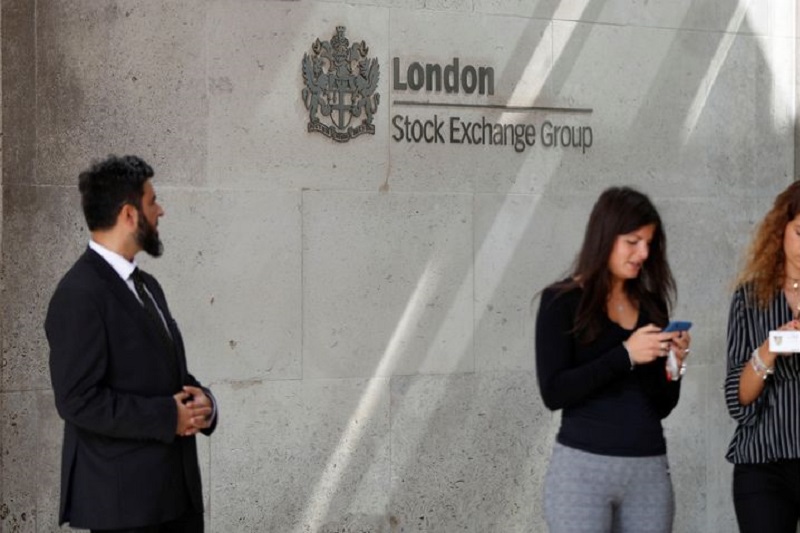Proactive Investors -
- FTSE 100 lower, banks in focus as PacWest tumbles in the US
- Shell (LON:RDSa) jumps as profit tops forecast and launches US$4bn buyback
- Mortgage approvals rise but lending grinds to a halt
Bill Ackman calls on US authorities to "wake up"
American billionaire investor and hedge fund manager Bill Ackman has called on the US authorities to “wake up” and implement a systemwide deposit guarantee regime now.
He argued First Republic Bank (NYSE:FRC) would not have failed if the FDIC temporarily guaranteed deposits while a new guarantee regime were created.
“Instead, we watch the dominoes fall at great systemic and economic cost,” he claimed.
Pointing out banking is a “confidence game,” Ackman continued, “at this rate, no regional bank can survive bad news or bad data as a stock price plunge inevitably follows.”
The regional banking system is at risk. SVB's depositors' bad weekend woke up uninsured depositors everywhere. The rapid rise in rates impaired assets and drained deposits. Zeroing out shareholders and bondholders massively increased the banks’ cost of capital. CRE losses loom.…— Bill Ackman (@BillAckman) May 3, 2023
Noting comments from PacWest that it is “pursuing strategic alternatives' means an FDIC “shutdown over the coming weekend.”
Ackman said there is no incentive to bid until Sunday after the failure explaining the GSIBs (globally systemically important banks) have an unfair competitive advantage “as too big to fail means only their uninsured depositors can sleep soundly.”
“Until the playing field is levelled, the regional banks are at grave risk.”
“Confidence in a financial institution is built over decades and destroyed in days,” he added.
“Until investors are rewarded for betting on a wobbling bank, there will be no bid, and the best sale is the last price,” he feared.
“We are running out of time to fix this problem,” he said and asked, “How many more unnecessary bank failures do we need to watch before the FDIC, US Treasury and our government wake up?”
Mortgage approvals jump but overall lending grinds to a halt
Mortgage lending ground to a halt in March although the number of approvals rose from February, according to figures from the Bank of England.
The BoE said mortgage lending to individuals fell from a net flow of £0.7bn in February to net zero in March.
Excluding the pandemic this is the lowest level of net borrowing since June 2011 (£0.3 billion of net repayment).
But the BoE noted net mortgage approvals for house purchases rose significantly to 52,000 in March, from 44,100 in February, the highest
number since last October, although still lower than the 69,777 signed off a year earlier, in March 2022.
The ‘effective’ interest rate – the actual interest rate paid – on newly drawn mortgages increased by 17 basis points, to 4.41% in March.
Consumers borrowed an additional £1.6bn in consumer credit in March, on net, compared with £1.5bn borrowed during February while households withdrew £4.8bn from banks and building societies in March.
The figures also showed households withdrew £4.8bn from banks and building societies in March.
Service sector accelerates in the UK
Growth in the UK's services sector accelerated sharply in April, according to the latest survey data, helping to drive growth in the private sector overall amid a slump in manufacturing.
The S&P Global/CIPS services PMI index rose to 55.9 points in April from 52.9 in March, the fastest rise in activity for 12 months, and higher than the flash estimate of 54.9.
"Service providers experienced the steepest upturn in new work for 13 months as resilient consumer spending combined with a turnaround in demand for business services to boost overall order books," said Tim Moore, economics director at S&P Global Markets Intelligence.
The survey noted that stronger consumer spending was a factor boosting business activity during April, especially those operating in the travel, tourism and leisure sub-sectors while there were also reports citing a turnaround in demand for business services, despite pressure on budgets from intense cost inflation.
More than half of the survey panel (52%) expect an increase in business activity during the year ahead, while just 12% predict a decline.
The degree of optimism has increased in each month since last November, supported by resilient consumer spending and improving confidence regarding the global economic outlook.
